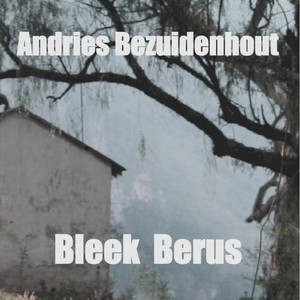
- 歌曲
- 时长
简介
Reviews of Bleek Berus from the South African media: “He may describe himself as a mere ‘blip’ on the Afrikaans cultural scene but Andries Bezuidenhout’s new album Bleek Berus (One F Music) positions him as one of the country’s most significant songwriters. This is evident on the poignant Dis Net Werk Toe Wat Ek Nog Deur Hillbrow Ry, a nostalgic lament, which poses the question: What happened to the Voëlvry generation? Johannes Kerkorrel’s Hillbrow was an anthem for the youth that rallied around the Voëlvry movement, so Bezuidenhout’s confession that the only time he thinks about the run-down suburb is when he drives through it on the way to work is a severe indictment of how times have changed between 1989 and 2010. Bezuidenhout acknowledges this in the liner notes when he describes the song as being about the Voëlvry generation who now drive BMWs and are too afraid to pick up hitchhikers. In 1989 Kerkorrel was singing ‘gee you hart vir Hillbrow’ and taking the piss out of racist South Africans behind the wheels of their BMWs voting for the National Party. Bezuidenhout in 2010 is asking the questions: What has become of that punk spirit that fuelled Voëlvry? … As the title suggests, the album is fascinated with the idea of white people finding peace in the new South Africa, reconciling their troubled history and positioning themselves within the social fabric of South Africa — and the bleak dry landscape is the perfect metaphor for that history. While friends emigrate and others live in fear, Bezuidenhout is looking forward — too much a part of this country to quit, but also disenchanted with the way most white people live their lives in the new democratic South Africa. Is the Voëlvry message still relevant to white South Africans in 2010? Bezuidenhout doesn’t have the answers, but he is asking the questions.” - Lloyd Gedye, Mail & Guardian “ ‘Modest’ is the best word to describe Andries Bezuidenhout. Throughout our two-hour interview he constantly tries to downplay the importance of his work as a singer/songwriter, as someone who carried the Voëlvry spirit into the 21st century. But for me Andries is one of the most exciting and versatile characters in the alternative Afrikaans scene. Many will know him as the singer of the now defunct Brixton Moord en Roof Orkes. But he’s also a sociologist at Wits University and a columnist for Rapport, while last year he published his first volume of poetry, Retoer. It took him five years to come with a follow-up to his first solo album, Insomniak se Droomalmanak. But the recently launched Bleek Berus was well worth the wait. Largely produced by Andries’s ex-band mate Drikus Barnard it has a bleak, almost tinny sound and songs that tell tales of leaving, murder and ecological disaster. Discomforting tunes for an uncertain age, but always with a touch of humour.” - Fred de Vries, LitNet “Oukei, hier hoor ek nou ’n liedjie wat vir klassieke status bestem is, is ’n gewaarwording wat jy bitter selde kry. Dis dan wanneer jou bloed ’n snaar word, soos David Kramer sê, en jy vergeet van alles anders in en om jou. Ek het daardie spesiale transendentale hoendervleis ervaar toe ek as omgekrapte 17-jarige in 1988 vir Johannes Kerkorrel en die Gereformeerde Blues Band in die ou Grand Central in Kerkstraat gaan kyk het en deur Hillbrow oorweldig is. En byna 20 jaar later by Oppikoppi 2007 word ek deur dieselfde gevoel herbesoek toe Andries Bezuidenhout sy ‘Dis net werk toe wat ek nog deur Hillbrow ry’ begin speel. ‘Certain songs they get so scratched into our souls’ sing The Hold Steady, en Bezuidenhout se Hillbrow, wat direk na Kerkorrel se liedjie en ook Donker donker land verwys, is een van daai – die soort ballade waarop Leonard Cohen trots sou wees… En hierdie is nie die enigste juweel op Bleek berus nie. Bezuidenhout… se tweede album bevat tien ambisieuse snitte wat veral die woord, die werklikheid en die emosie van woestyn verken in duister lirieke, mineurtone en afsydige melodieë vol skaduwees… Bezuidenhout het reeds met sy solo-debuut, Insomniak se droomalmanak (2003), bewys dat hy ’n hoogs begaafde liriekskrywer is, maar sy tweede is musikaal interessanter, veral vanweë Drikus Barnard se musiekregie wat intieme akoestiese kitaarspel treffend met elektroniese klanke en slagwerk inkleur en vervreem. Dis ’n merkwaardige album wat verbete probeer sin maak van ’n ongenaakbare wêreld, en in die proses Bleek berus vind in die treurige skoonheid van woord en klank.” - Danie Marais, Beeld “Tematies sny die meeste liedjies aan droë plekke. Soms het dit direk met waterlose landskappe te doen, andersins met plekke waarheen uitgewyk is en daar dan na die waterryke van die bekende gesmag word. Moet egter nie stofgetrapte gedagtes of ’n sentimentele geweeklaag verwag nie. Daar is humor en lewenswaarhede wat werklik vermaak en met jou praat. Bezuidenhout het saamgespan met Drikus Barnard (Brixton van die voormalige Brixton Moord en Roof-orkes). Hulle het sowat twee jaar lank aan die album gewerk. Sy vorige solo-album, Insomniak se Droomalmanak (2003), het destyds al die hoop laat opvlam dat dit opgevolg sou word. Hoewel hy hom meer onlangs met die digkuns besig gehou het (en dit wys in die album), is die nuwe album meer as welkom. In ’n persverklaring word dit ‘hedendaagse Americana en alt-country’ genoem, maar hierdie album is uit Afrika. Waar anders kan die ‘Pikaninie-wiegelied’ só klink? Die elektroniese inkleding is oorspronklik en luister gerus na die onverbeterlike stemkombinasie van Bezuidenhout en Marissa West op die snit ‘Droogte’.” - Marian Malan, Die Burger







